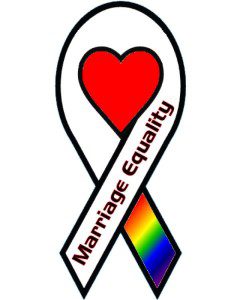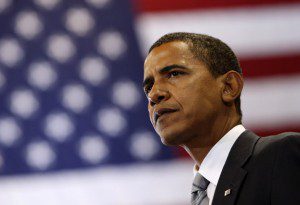 When I worked in a residential facility for people with HIV/AIDS in Texas, I’ll admit I developed a little bit of a grudge against the “historically black” Christian church. Though I adored the more expressive gospel worship style and embraced liberation theology as truly central to Jesus “good news,” there was an undercurrent of intolerance that was a true killer.
When I worked in a residential facility for people with HIV/AIDS in Texas, I’ll admit I developed a little bit of a grudge against the “historically black” Christian church. Though I adored the more expressive gospel worship style and embraced liberation theology as truly central to Jesus “good news,” there was an undercurrent of intolerance that was a true killer.
In my years at that facility, the incidence of heterosexual African-American married women coming to us for help increased dramatically. The more I read, I realized this was part of a larger national trend. Because homosexuality generally was considered taboo within the African-American community (a view vocally propagated by a majority of its churches), gay black men tended to live “on the D-L,” or on the down-low.
This mean that a growing number of gay black men would conform to their cultural norms of getting married and having kids, but then would engage in secret relationships with men on the side. Those who contracted HIV would then put their wives at risk, most of whom were completely oblivious to their husband’s extracurricular activities. Because they assumed they were in a monogamous relationship they had unprotected sex with their spouse, resulting in a shocking diagnosis down the line of being HIV-positive.
This phenomenon is only one example of the insidious effects of intolerance, often built upon the Bible as its moral foundation. Not only  were the gay men pressured into living a duplicitous life; their innocent wives suffered perhaps the greatest consequence. And where was the church for these women and their husbands when HIV began to tear their families apart? Some stepped up in love, but for the most part, we could not get them involved in help for even those from their congregation who came to us for assistance.
were the gay men pressured into living a duplicitous life; their innocent wives suffered perhaps the greatest consequence. And where was the church for these women and their husbands when HIV began to tear their families apart? Some stepped up in love, but for the most part, we could not get them involved in help for even those from their congregation who came to us for assistance.
A decade later, I’m encouraged to see what seems to be a sea change within the African-American community with regard to its attitude toward marriage equality. First, the NAACP came out in support of equality, and then President Obama became more vocal in his support for same-sex marriage rights. Politically expedient timing aside, it’s the most vocally affirming any elected president has been in support of marriage equality.
 Though all of this was encouraging, I was disheartened when many black church leaders withdrew from Obama following his call for equality.
Though all of this was encouraging, I was disheartened when many black church leaders withdrew from Obama following his call for equality.
Why is it that, in too many cases, the church – the very body that should be out front in the struggle for justice, equality and human rights – is the final hold-out in an inevitable shift toward a broader definition of justice? It’s not unlike the Southern Baptist church, which clung to the tradition of slavery as a right of its white members, but which now has become a permanent tarnish on the denomination’s legacy.
Fortunately there are some brave voices of dissent, even within the black church, such as Rev. Dr. Otis Moss III, African-American United Church of Christ pastor who came out on record as an advocate for marriage equality. Rev. Moss has plenty to lose as a prominent leader of Trinity UCC, but in stepping out in support of what he believes is right (based principally upon his faith as a Christian), he helps open the door for others to follow him through it.
Dr Martin Luther King was prophetic when he said that the arc of history is long, but that it bends toward justice. Sometimes it is too long, it seems, for those suffering the negative effects of the injustice. But once in a while along that long arc, a seismic shift takes place, reorienting us toward a more tolerant, inclusive and just society.
I tend to believe that this is one of those times. And I believe that one big key to the shift is in the hands of African-American church leaders.
Prayers for strength and conviction for Rev. Moss and others like him who will step forward and speak out for what is right. Ultimately, the struggle for marriage equality is bending toward justice; time will tell which side of the arc the church will find itself on.











